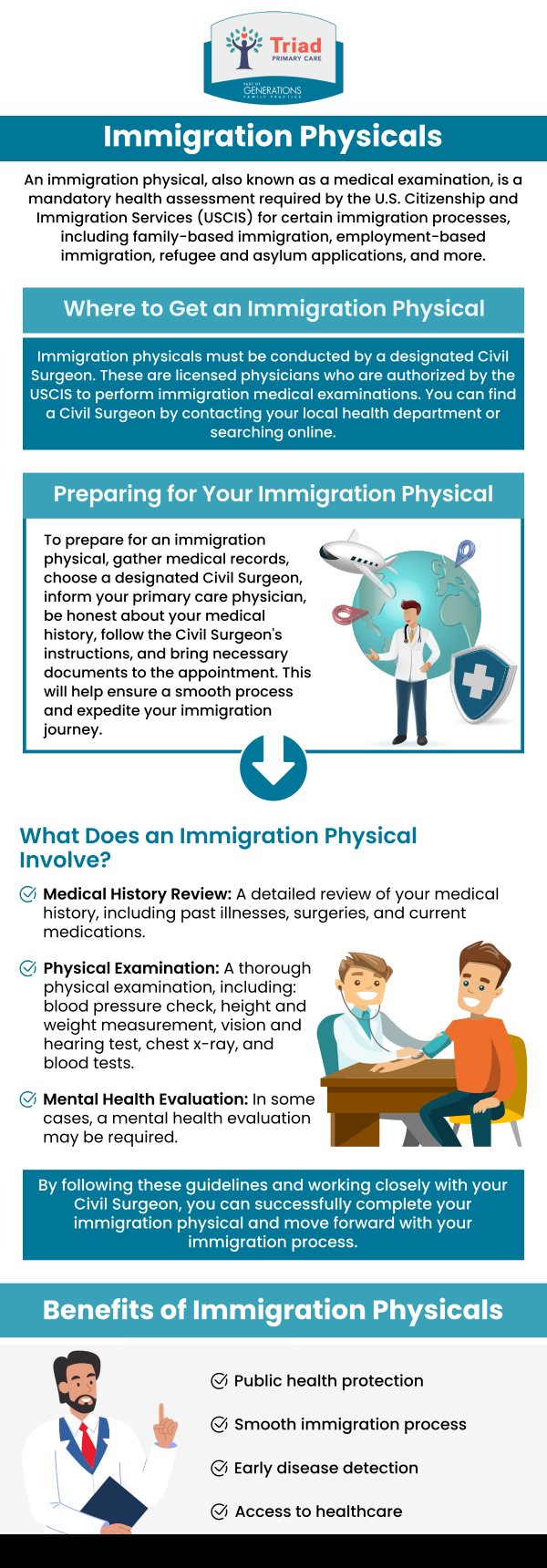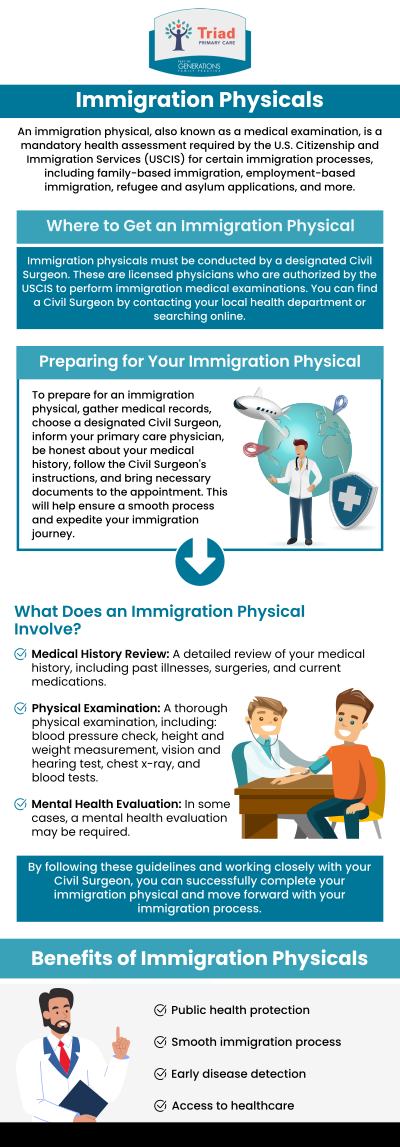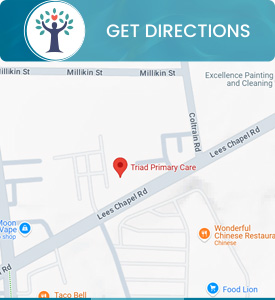How Immigration Physicals Work
Immigration physicals involve a series of medical exams required for visa and green card applications, including vaccinations and screenings for contagious diseases. Dr. Cammie Fulp offers this service at Triad Primary Care, ensuring a smooth process for those needing these essential evaluations. For more information, contact us or book an appointment online. We are conveniently located at 1309 Lees Chapel Rd., Greensboro, NC 27455.


Nearly a million people seek U.S. citizenship every year, and every application that’s submitted must include detailed medical and health information about the applicant. Immigration physicals are exams specifically developed for the citizenship process, and understanding how they work can help your exam and your application process go more smoothly.
At Triad Primary Care, our team offers immigration physicals to patients throughout the Greensboro, North Carolina, area. Here’s what you need to know.
Why immigration physicals are required
Immigration physicals are conducted to screen for medical and health issues that could prevent someone from becoming a U.S. citizen. Specifically, immigration physicals look for these four health-related issues:
- History of certain communicable (contagious) diseases
- History of drug abuse
- Medical disorder that could cause harmful or dangerous behaviors
- No record of vaccinations
The outcome of your immigration physical helps determine if your application for citizenship moves forward or if it’s delayed or denied.
The exam itself is a lot simpler than a regular annual physical exam. For an immigration physical, we only look for issues specified for the citizenship application process. We won’t need to perform a complete physical, nor will we need to provide any treatment for an existing medical problem.
Once your exam is complete, we forward your exam information to the United States Citizenship and Immigrations Services (USCIS) agency. Your information is then reviewed, and the agency determines if your application is accepted or denied for medical reasons.
Preparing for your physical
Having a serious medical problem, like the health issues in the list above, failing to provide medical records, or forgetting to complete all the steps of the medical portion of your application are all potential grounds for having your application denied.
That’s why even before you come in for your physical, it’s important to gather all your medical records and health-related documents in order to ensure our team has the information necessary to complete our portion of your paperwork.
Vaccine records are especially important, including vaccines for communicable diseases like:
- Polio
- Measles, mumps, and rubella
- Tetanus
- Diphtheria
- Pertussis (whooping cough)
- Hepatitis B
- Influenza type B
The USCIS also requires applicants to complete a full series of COVID-19 vaccines.
And of course, don’t forget to bring in any official paperwork related to your application, as well as your ID. If possible, bring in a copy of Form I-693, a USCIS form that details your medical history.
Schedule your immigration physical today
Obtaining U.S. citizenship is a complex process that depends on every step being completed in full and in the proper sequence in order for the application to advance (and ultimately be approved).
If you have any questions about your exam, you can call our office before your visit, so we can help deter the delay of your exam or affect your exam results.
To schedule your immigration physical at Triad Primary Care, Book an appointment at our Greensboro, North Carolina, practice today. We are conveniently located at 1309 Lees Chapel Rd., Greensboro, NC 27455. We serve patients from Greensboro NC, Browns Summit NC, McLeansville NC, Oak Ridge NC, Summerfield NC, and surrounding areas.


Additional Services You May Need
▸ Covid-19 Testing
▸ Medical Weight Loss
▸ Physical Exams
▸ Addiction Treatment
▸ Primary Care
▸ Lab Testing



